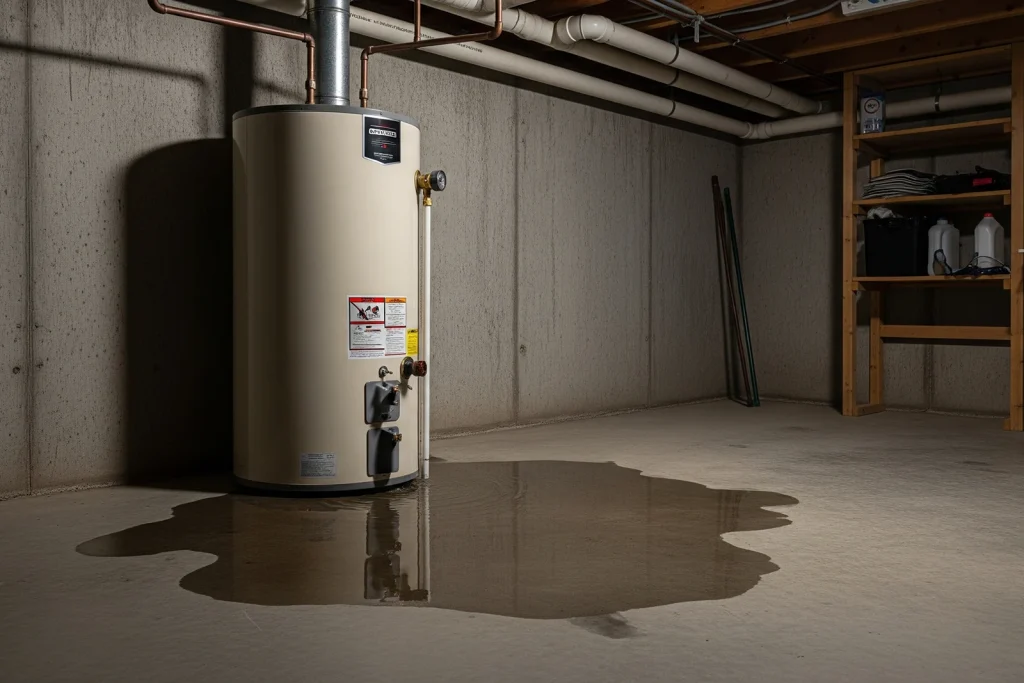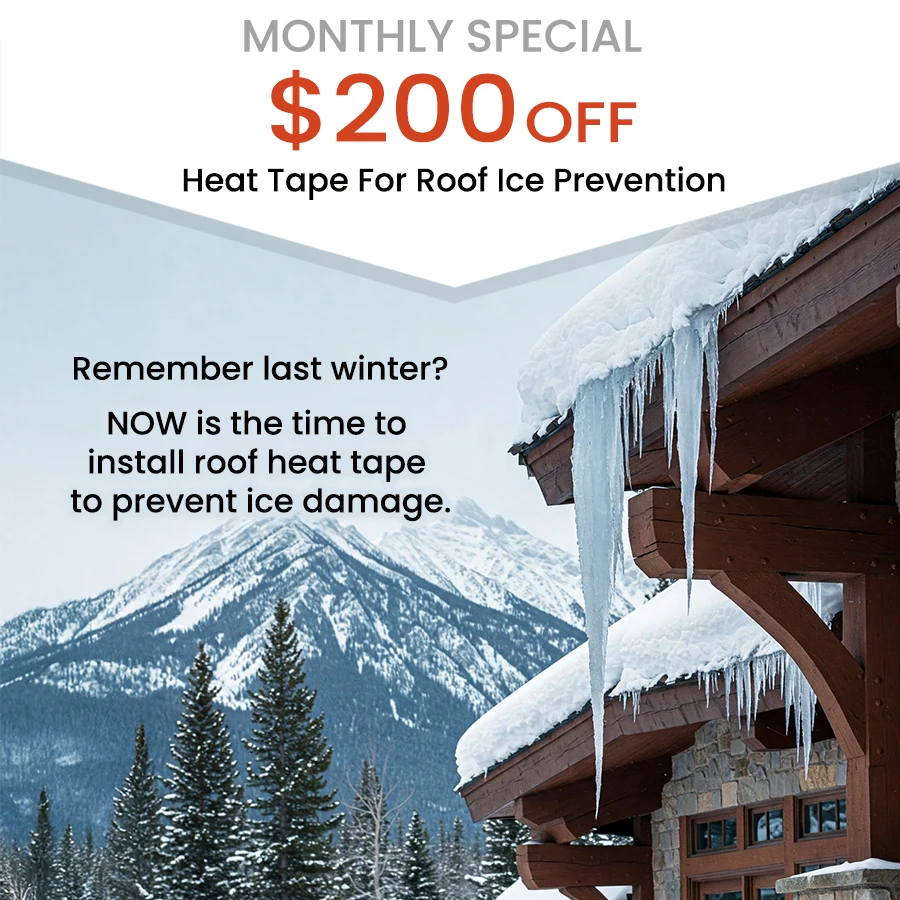
Your water heater is one of the hardest-working appliances in your home, providing hot water for showers, dishwashing, laundry, and countless other daily activities. But like all mechanical systems, water heaters don’t last forever. Knowing when to replace your water heater can save you from unexpected cold showers, water damage, and costly emergency repairs.
At Central Heating Cooling Plumbing Electrical, we’ve been helping Flathead Valley homeowners save energy and stay comfortable for over 33 years. Here are the three most important warning signs that indicate it’s time to consider a water heater replacement.
How Long Do Water Heaters Typically Last?
Before diving into the warning signs, it’s important to understand the typical lifespan of different water heater types:
Traditional Tank Water Heater Lifespan
Most conventional tank water heaters last between 8-12 years with proper maintenance. Gas water heaters typically have a slightly shorter lifespan than electric models due to the more aggressive nature of combustion.
Tankless Water Heater Lifespan
These on-demand systems can last 15-20 years or more with proper care, making them a popular long-term investment for many homeowners.
Factors Affecting Lifespan
Water quality, usage patterns, maintenance frequency, and installation quality all play crucial roles in determining how long your water heater will serve your family effectively.
Sign #1: Age and Declining Performance
The most straightforward indicator that replacement time is approaching is your water heater’s age combined with noticeable performance issues. If your water heater is approaching or has exceeded its expected lifespan and you’re experiencing any of the following problems, replacement is likely your best option:
Inconsistent Water Temperature: If your once-reliable water heater now struggles to maintain consistent hot water temperatures, or if you’re running out of hot water much faster than usual, the internal components may be failing.
Longer Recovery Times: When your water heater takes significantly longer to reheat after heavy use, it’s often a sign that the heating elements or gas burner are becoming less efficient.
Increased Energy Bills: An aging water heater works harder to produce the same amount of hot water, leading to higher utility costs. If you’ve noticed a steady increase in your energy bills without a corresponding increase in usage, your water heater may be the culprit.
Sign #2: Visible Signs of Corrosion and Leaks
Physical deterioration of your water heater is a clear indication that replacement should be considered seriously. Here’s what to watch for:
Rust and Corrosion: Rust on the tank exterior, inlet/outlet connections, or in your hot water indicates that corrosion is compromising the system’s integrity. Once rust appears, it typically spreads quickly and can lead to leaks or complete tank failure.
Water Pooling: Any water around the base of your water heater is cause for immediate concern. While minor leaks might be repairable, they often indicate that the tank itself is beginning to fail. Water damage from a failed water heater can be extensive and expensive.
Mineral Buildup: In areas with hard water like many parts of Montana, mineral deposits can accumulate inside the tank and on heating elements. Excessive buildup can cause rumbling noises, reduced efficiency, and eventual system failure.
Discolored Water: If your hot water has a rusty, metallic taste or brown/reddish color, it’s likely due to internal corrosion of the tank or pipes. This is both a health concern and a sign of significant system deterioration.
Sign #3: Strange Noises and Unusual Sounds
Your water heater should operate relatively quietly. Unusual sounds often indicate internal problems that may warrant replacement:
Rumbling and Popping: These sounds typically result from sediment buildup at the bottom of the tank. As water heats, it moves through the sediment layer, creating these characteristic noises. While flushing can sometimes help, extensive buildup may indicate it’s time for a new unit.
Cracking or Creaking: These sounds may indicate that the tank is expanding and contracting excessively due to temperature fluctuations, potentially signaling structural weakness.
High-Pitched Whining: This noise often indicates issues with the heating elements in electric water heaters or problems with gas combustion in gas models.
Benefits of Upgrading Your Water Heater
Replacing an aging water heater isn’t just about avoiding problems, it’s an opportunity to improve your home’s efficiency and comfort:
Enhanced Energy Efficiency: Modern water heaters are significantly more efficient than models from even a decade ago. ENERGY STAR certified models can reduce your water heating costs by up to 20% or more.
Improved Reliability: New water heaters provide consistent performance and peace of mind, eliminating the worry of unexpected failures and emergency repairs.
Better Technology: Today’s water heaters feature advanced controls, improved insulation, and smart technology options that allow for better temperature control and energy management.
Tankless Water Heater Options
Many Flathead Valley homeowners are choosing tankless water heaters for their hot water needs. These systems offer several advantages:
Space Savings: Tankless units are compact and can be mounted on walls, freeing up valuable floor space in utility areas.
Endless Hot Water: On-demand heating means you’ll never run out of hot water, regardless of usage patterns.
Longevity: With proper maintenance, tankless systems can last twice as long as traditional tank water heaters.
Energy Efficiency: By heating water only when needed, tankless systems can be 24-34% more efficient than conventional storage tank water heaters.
When to Call the Professionals
If you’re experiencing any of these warning signs, don’t wait for a complete failure. Professional assessment can help you determine whether repair or replacement is the most cost-effective solution for your situation.
At Central Heating Cooling Plumbing Electrical, our experienced plumbers can evaluate your current system, discuss your household’s hot water needs, and recommend the best solution for your home and budget. We service Kalispell, Whitefish, Columbia Falls, Bigfork, Polson, Lakeside, Somers, and the entire Flathead Valley.
Professional Installation Matters
Proper installation is the key to maximizing your new water heater’s performance, efficiency, and lifespan. Our certified technicians ensure that your new system is installed according to manufacturer specifications and local codes, providing you with reliable service for years to come.
We also offer comprehensive warranty coverage and our Comfort Care Program, which includes regular maintenance to keep your new water heater operating at peak efficiency.
Don’t Wait for Emergency Replacement
The worst time to replace a water heater is when it fails completely, leaving you without hot water and potentially causing water damage to your home. By recognizing these warning signs early, you can plan your replacement at a convenient time and avoid the stress and expense of an emergency situation.
If you’re noticing any of these three critical signs, from age-related performance decline, visible corrosion or leaks, to unusual noises, contact Central Heating Cooling Plumbing Electrical today. Our team will provide honest assessment and expert installation to ensure your family continues to enjoy reliable hot water for years to come.
Remember, there’s only One Call you need to make for all your plumbing and hot water needs in the Flathead Valley. Now That’s Convenient!



